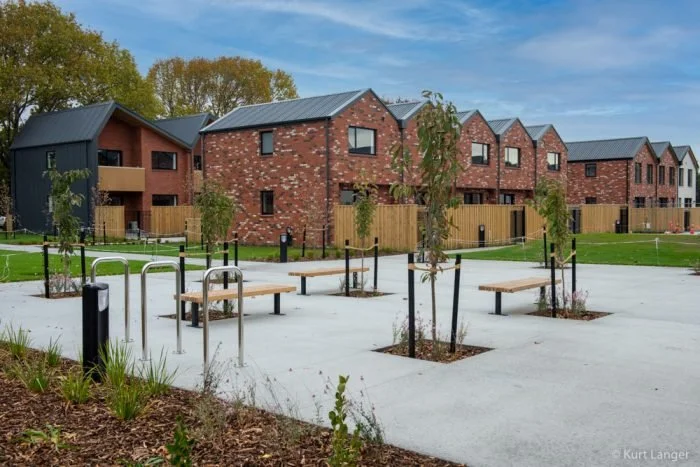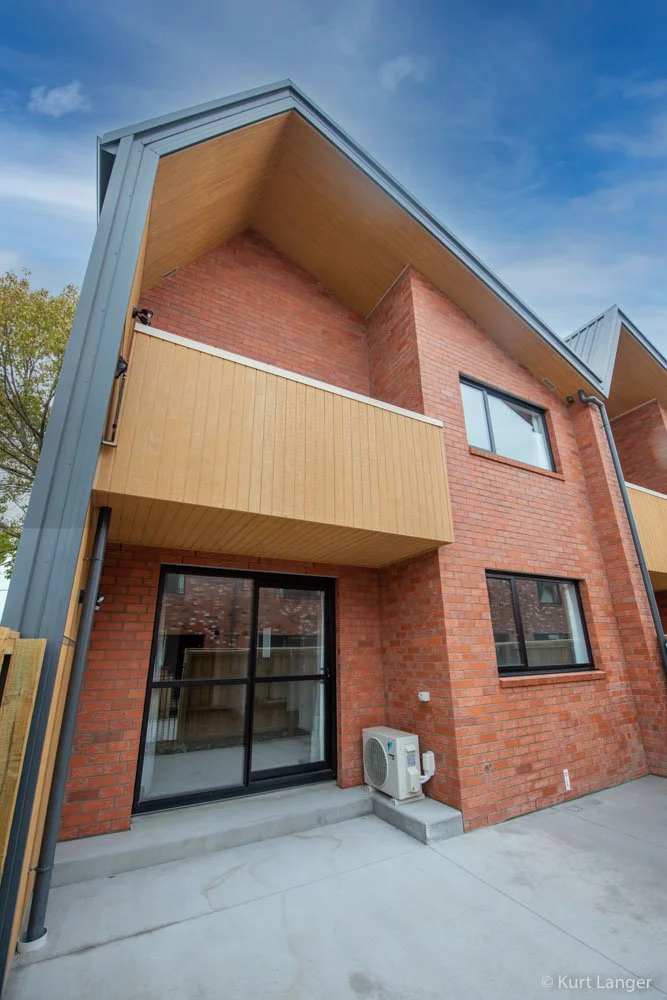Karoro Lane opens soon
It’s named after the southern black-backed gull – and it will give our community wings.
Karoro Lane will soon welcome its first families.
People are preparing to move into the first of 32 new homes on Karoro Lane, one of the newest streets in one of the biggest developments of its kind in the city.
Karoro Lane is the second stage of Ōtautahi Community Housing’s three-stage project to add 90 homes to the city’s community housing stock.
It will be declared open at a low-key “soft” opening on Friday, April 16.
The homes replace Brougham Village, a series of Cowey Mills-designed blocks that opened in 1978 but which were left damaged and dilapidated after the Canterbury earthquakes.
Like the rest of the development, the 14 two-bedroom and 18 one-bedroom homes on Karoro Lane are built to New Zealand Green Building Council Homestar 7 standard.
Among other things, this means they have resource efficient layouts and well insulated, high performing thermal envelopes. They will be comfortable and efficient to run.
A 1-bedroom home on Karoro Lane.
The development is built as a series of three communities. Korimako Lane was the first to open. It is right next to Karoro Lane and has 28 one-bedroom homes.
The last to open will be Hoiho Lane. It’s also next door to Karoro Lane, and will have a mix of 1,2,3 and 4-bedroom homes.
All up, the development will consist of 70 1-bedroom homes, 14 2-bedroom homes, three 3-bedroom homes, and three 4-bedroom homes.
A dozen homes can be converted to have accessible bathrooms when they’re needed. This can be done quickly, usually within a week.
They are linked by shared, green spaces and communal garden areas to encourage interaction.
All residents will share the electric bike docking stations on site, and the electric vehicle scheme that ŌCHT will later trial there.
The project was delivered by Southbase Construction, which continues to put the finishing touches on Hoiho Lane.
The development is the largest building project ŌCHT has commissioned since it was established in 2016.
It is the one of the largest developments of its kind under construction for an NGO in New Zealand.
Land for the development was transferred to ŌCHT as part of the 2014 Housing Accord Agreement between Christchurch City Council and the Government to capitalise the Trust.
The complex will be owned and managed by ŌCHT.
It will boost community housing stock in a city with a long community housing waiting list. More than 1500 people on the MSD Social Housing Register in December needed a home in Christchurch.



